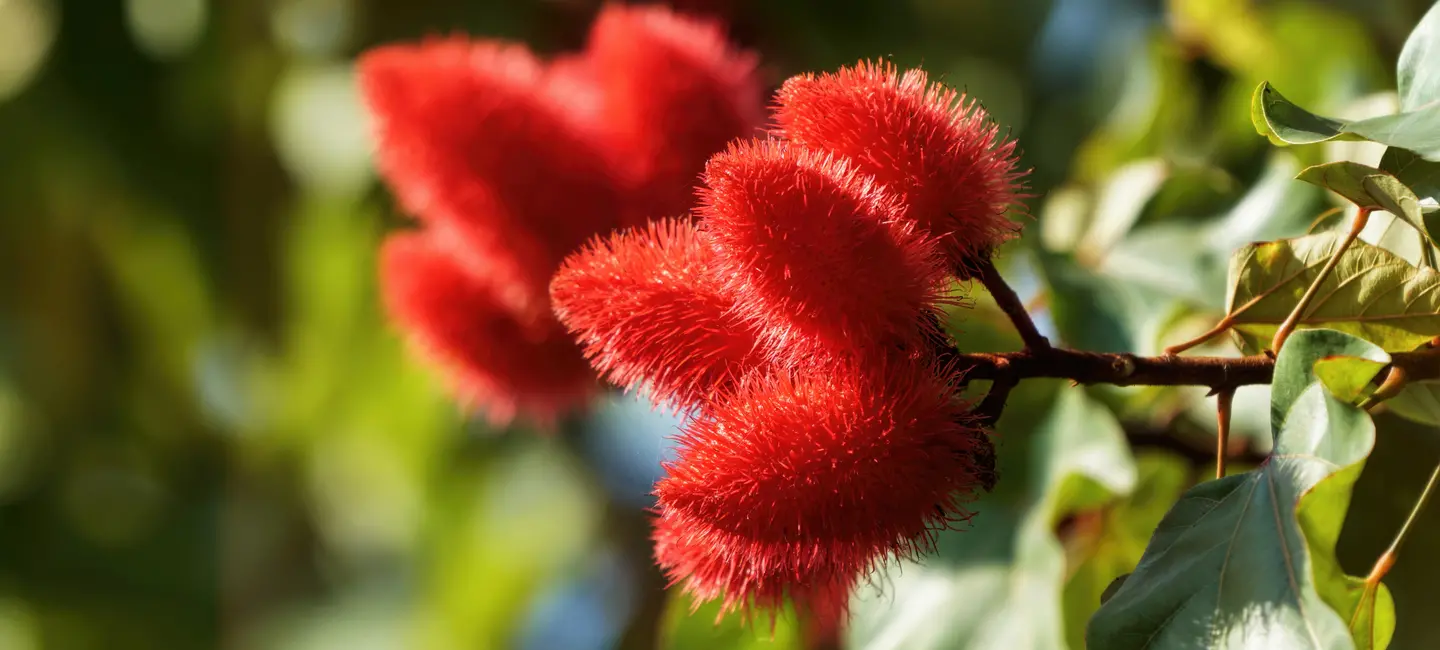
Annatto is a plant. The seed, leaf, and root are used to make medicine.
Annatto is used for enlarged prostate (benign prostatic hyperplasia or BPH), diabetes, stomach problems, skin problems, and other conditions, but there is no good scientific evidence to support these uses.
In foods, annatto is used as a coloring agent.
Is It Effective?
NatMed Pro rates effectiveness based on scientific evidence according to the following scale: Effective, Likely Effective, Possibly Effective, Possibly Ineffective, Likely Ineffective, Ineffective, and Insufficient Evidence to Rate.
- Enlarged prostate (benign prostatic hyperplasia or BPH). Early research shows that taking annatto daily for 12 months does not improve symptoms of BPH.
- Diarrhea.
- Constipation.
- Fever.
- Diabetes.
- Fevers.
- Fluid retention.
- Heartburn.
- Malaria.
- Hepatitis.
- Burns.
- Vaginal infections.
- As an insect repellent.
- Other conditions.
More evidence is needed to rate the effectiveness of annatto for these uses.
Is it Safe?
Annatto contains chemicals that might act as antioxidants or kill bacteria. Also, some chemicals in annatto might change the way the body uses sugar.
When taken by mouth: Annatto seed extract is LIKELY SAFE for most people when used in food amounts. The leaf powder is POSSIBLY SAFE when used at doses of up to 750 mg daily for 12 months. There isn't enough reliable information to know if annatto seed is safe to use in the larger amounts found in medicine or what the side effects might be.
When applied to the skin: There isn't enough reliable information to know if annatto is safe or what the side effects might be.
When applied into the eyes: There isn't enough reliable information to know if annatto is safe or what the side effects might be.
Special Precautions & Warnings:
Pregnancy and breast-feeding: There isn't enough reliable information to know if annatto is safe to use when pregnant or breast-feeding. Stay on the safe side and avoid use.
Diabetes: Annatto might increase or decrease blood sugar levels. Monitor your blood sugar carefully if you have diabetes and use annatto as a medicine. The dose of your diabetes medication may need to be changed.
Surgery: Annatto might affect blood sugar levels. This has raised some concern that it might interfere with blood sugar control during and after surgery. Stop using annatto as a medicine at least 2 weeks before a scheduled surgery.
Medications for diabetes (Antidiabetes drugs)
Interaction Rating=Moderate Be cautious with this combination.
Annatto might increase or decrease blood sugar. Diabetes medications are used to lower blood sugar. By increasing or decreasing blood sugar, annatto might decrease the effectiveness of diabetes medications or increase the risk of your blood sugar going too low. Monitor your blood sugar closely. The dose of your diabetes medication might need to be changed.
Some medications used for diabetes include glimepiride (Amaryl), glyburide (DiaBeta, Glynase PresTab, Micronase), insulin, pioglitazone (Actos), rosiglitazone (Avandia), chlorpropamide (Diabinese), glipizide (Glucotrol), tolbutamide (Orinase), and others.
Herbs and supplements that might lower blood sugar: Annatto might increase or decrease blood sugar. Using it with herbs and supplements that lower blood sugar might increase the risk of low blood sugar in some people. Some of these herbs and supplements include bitter melon, ginger, goat's rue, fenugreek, kudzu, willow bark, and others.
There are no known interactions with foods.
The appropriate dose of annatto depends on several factors such as the user's age, health, and several other conditions. At this time there is not enough scientific information to determine an appropriate range of doses for annatto. Keep in mind that natural products are not always necessarily safe and dosages can be important. Be sure to follow relevant directions on product labels and consult your pharmacist or physician or other healthcare professional before using.
Acafrao, Acafroa, Acafroeira de Terra, Achiote, Achioti, Achiotillo, Achote, Achote of the Mountain, Analto, Anatto, Annatto Orellana, Annato, Annotta, Arbre Rouge à Lèvre, Arnotta, Atole, Axiote, Bicha, Bico de Calango, Bija, Bixa orellana, Bixa, Bijo, Bijol, Black Grain, Caituco, Cascaverde, Cascavermelha, Chacangaricua, Graopreto, Green Peel, Guajachote, Koessewee, Latkan, Lipstick Tree, Lizard Beak, Onotillo, Onoto, Onotto, Orlean, Pimentao Doce, Pumacua, Red Bark, Rocou, Rocouyer, Roucou, Santo-Domingo, Urucu, Urucum.
Information on this website is for informational use only and is not intended to replace professional medical advice, diagnosis, or treatment. While evidence-based, it is not guaranteed to be error-free and is not intended to meet any particular user’s needs or requirements or to cover all possible uses, safety concerns, interactions, outcomes, or adverse effects. Always check with your doctor or other medical professional before making healthcare decisions (including taking any medication) and do not delay or disregard seeking medical advice or treatment based on any information displayed on this website.
© TRC Healthcare 2024. All rights reserved. Use and/or distribution is permitted only pursuant to a valid license or other permission from TRC Healthcare.
